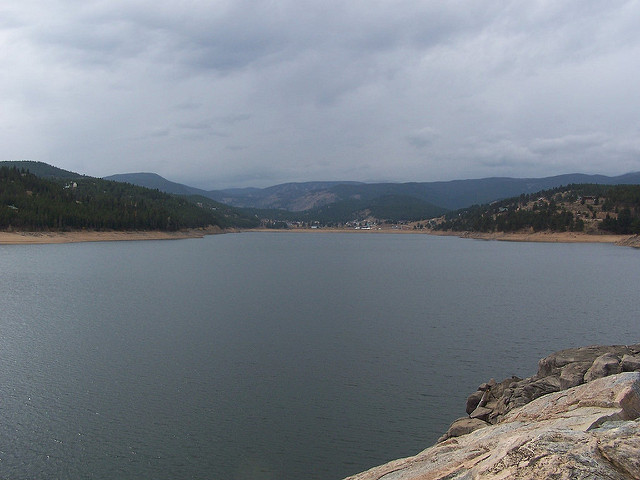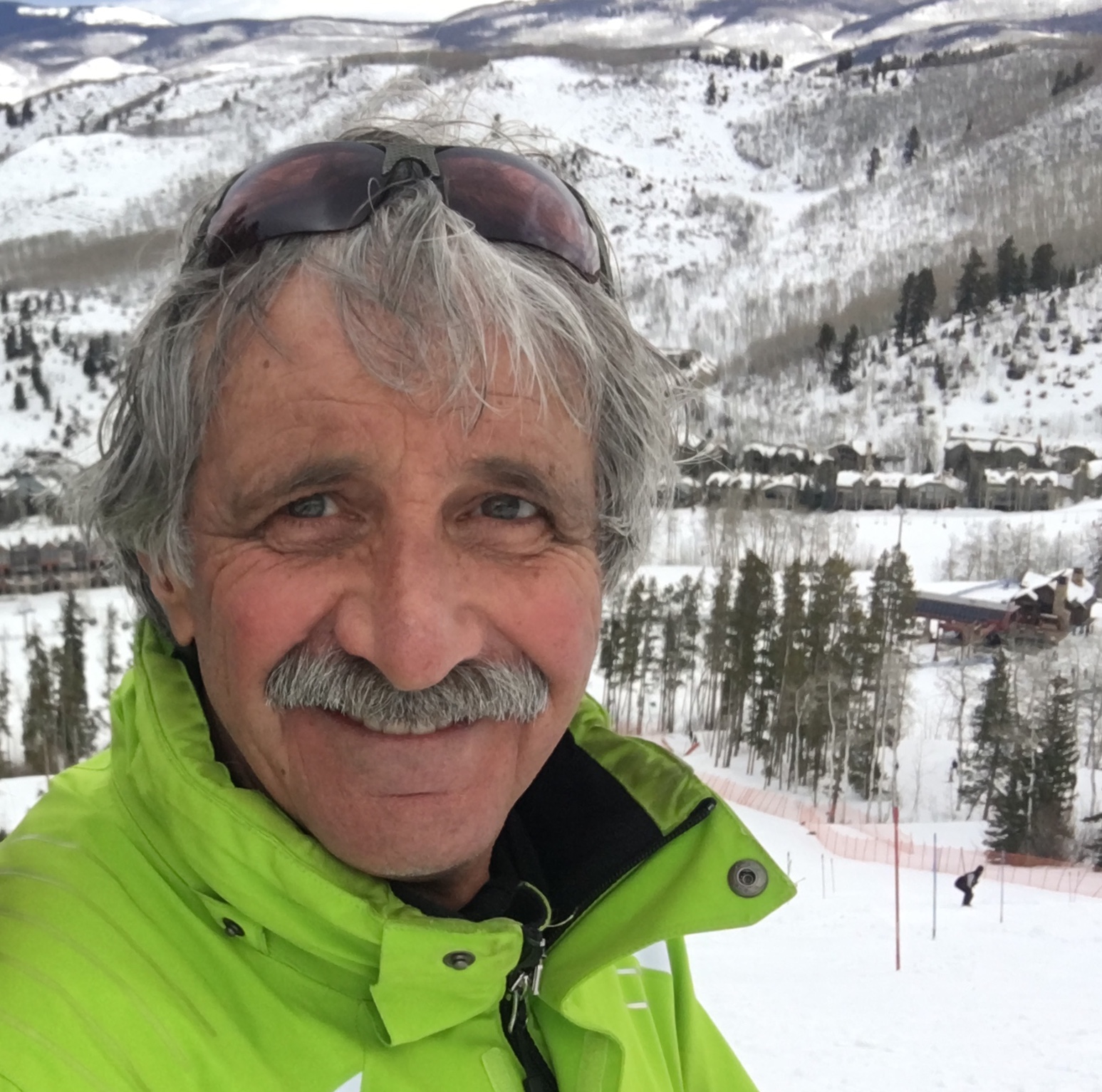By Larry Morandi
As Colorado’s Water Plan enters its third year of implementation, a new grant program run by the Colorado Water Conservation Board (CWCB) is encouraging innovative projects to help meet the water plan’s measurable objectives. Here are two examples that illustrate the diversity of approaches the plan supports.

Barker Meadow Reservoir, an existing storage pool. Credit: J. Stephen Conn/CC via Flickr
The water plan’s storage objective aims to add 400,000 acre-feet of water by 2050, and large projects whose planning began before the plan’s adoption in 2015 account for over half that volume. The water plan’s grant program allocates $3 million in 2018 to help jump-start smaller storage projects, including one that CWCB approved in January as part of a $700,000 grant to the City of Brighton for Erger’s Pond Augmentation Station adjacent to the South Platte River. The total project cost is $5.4 million, with the balance coming from city reserves. Total storage capacity is 1,800 acre-feet.
Curt Bauers, Brighton’s utilities director, says the project “is intended to augment alluvial groundwater pumping [water that is tributary to the South Platte] in the future, which will be used to meet our current—and a significant portion of future—annual customer water demands.” It consists of two pump stations and a gravity line that will move senior water rights and excess river water captured during peak spring runoff into the pond—the latter being water that might otherwise flow out of state—and return it to the river for subsequent groundwater withdrawals. Groundwater is the city’s primary water source. Anna Mauss with CWCB’s finance section notes that Erger’s Pond “will allow Brighton to withdraw groundwater connected to the South Platte River out of priority [as a junior water right] without harming other users through an augmentation plan approved in water court.”
The water plan’s agriculture objective includes maintaining agricultural viability and supporting agricultural conservation and efficiency. The grant program allocates $1 million in 2018 for projects that improve agricultural infrastructure and provide multiple benefits to help meet other water plan objectives. CWCB approved a $75,000 grant to Ducks Unlimited (DU) in January for the North Park Irrigated Meadows Infrastructure Improvements Project. The total cost is $300,000, with the balance coming from the Colorado Department of Parks and Wildlife and other sources. It will conserve 2,000 acre-feet of water through more efficient use and storage, and protect 1,000 acres of wetland habitat.
The project’s purpose is to “rehabilitate irrigation infrastructure (diversion, delivery and storage) tied to critical wildlife habitat and productive ranchland,” and move water to wet hay meadows that produce a valuable crop and provide a refuge for nesting waterfowl. It will replace headgates, add water measurement devices, fix delivery ditches and create shallow water impoundments. It will benefit not only farmers but wildlife dependent on wetlands in line with the water plan’s environment and recreation objective. And by reducing wasteful water use through irrigation upgrades, it will protect existing agricultural water rights that might otherwise be lost through abandonment.
Ducks Unlimited has worked closely with local farmers for years to get their buy-in. DU hydrologist Jason Roudebush emphasizes that “success is all about relationship-building with people who have a lot of pride in their land. It takes more than a phone call to gain their trust and commitment to manage the infrastructure once construction is complete.” As for multiple benefits, he sees the project supporting “the farming economy, water rights, and waterfowl.”
 Larry Morandi writes on environment and natural resources issues. His articles on drought, the Colorado River and public access to water have appeared in State Legislatures magazine. He recently retired from the National Conference of State Legislatures, a think tank based in Denver, where he was Director of State Policy Research. He previously worked for the Colorado Legislative Council as staff to water committees. Larry has lived in Colorado for the past 40 years, splitting his time between Denver and Summit County.
Larry Morandi writes on environment and natural resources issues. His articles on drought, the Colorado River and public access to water have appeared in State Legislatures magazine. He recently retired from the National Conference of State Legislatures, a think tank based in Denver, where he was Director of State Policy Research. He previously worked for the Colorado Legislative Council as staff to water committees. Larry has lived in Colorado for the past 40 years, splitting his time between Denver and Summit County.


 Print
Print
Reblogged this on Coyote Gulch.